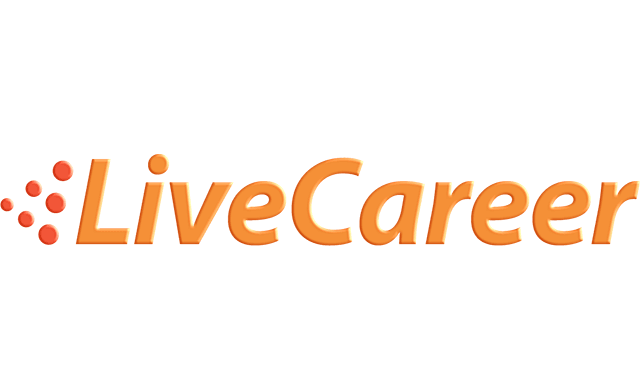How to Write a Resume for a Nursing Position

With job growth for registered nurses projected to grow by 15 percent by 2026, far outpacing the median job growth rate of 7 percent, nurses are in demand (to say the least). Fueled by an aging population, increased preventative care, and healthcare industry expansion, the outlook for nurses is expected to remain strong for years to come.
The best tool for leveraging that demand? A strong, targeted resume for a nursing position. Let’s review what to include, what to leave out, and what to emphasize.
What to Include
To get started, research your top two or three employers and create a template resume for a nursing position that you think might appeal to them. Then, use this template as a starting point, adjusting job titles, resume keywords, skills, and accomplishments as much as possible to mirror those listed in each job description. When you build a resume for a nursing position, you should also focus on key factors, such as training, skills, and experience, using standard headings.
1. Credentials
Your name and credentials first (RN, LPN) need to be front and center in your resume for a nursing position, followed by your license number, licensing body, and expiration date. Providing the license number will make things easier for recruiters, and, since license numbers are a matter of public record, there is no reason not to provide this information. Make sure the name on your resume matches the name on your nursing license exactly.
Next, list your highest degree first, followed by contact information. Don’t include your mailing or street address—this protects you from the possibility of identity theft. Instead, list your city and state of residence, followed by phone/text number, a professional-sounding email address, and your personalized LinkedIn URL.
2. Professional Summary
Begin your resume for a nursing position with a Professional Summary that highlights your relevant experience and focuses on the value you will bring to your next role. Describe yourself using the job title you are seeking and employ as many keywords as possible to describe your skills and past experience.
3. Patient Environments
Under each job heading in your Work Experience section, describe the healthcare facility you worked for: Was it a trauma center? What level? Was your last employer a teaching hospital? If so, specify the medical school affiliation. Include details such as patient demographics, number of beds, type of unit, technology and charting platforms used, medication administered, and equipment used.
4. Accomplishments
In addition to your duties, your resume for a nursing position should include numbers, such patient demographics, institutional statistics, and caseloads. List honors, awards, professional affiliations and offices held. Highlight administrative or management duties: Were you a charge nurse? Did you ever train or mentor new hires or nursing students?
5. Soft Skills
Soft skills like patient rapport and communication are utterly vital for effective nursing, so be sure to mention them. If you are bilingual or multilingual this is can be extremely beneficial, especially if you have experience providing patient care in another language.


What to Leave Out
Even before recruiters and hiring managers see your resume, it’s likely that an automated applicant tracking systems (ATS) will assess it. Most ATS are not programmed to scan for acronyms, so to make sure your resume makes it into human hands, spell out all acronyms, even those in wide usage within the medical field. ATS for nursing applicants may employ “knockout questions,” such as whether you have a current state license, as part of the online application process. This means that in addition to crafting a high-impact resume for a nursing position, you’ll need to pay close attention to each online application question and word your answers carefully.
1. Don’t Get Too Creative
Even in STEM careers like nursing, it’s best to avoid using tables and other informational graphics, since most ATS can’t read them. Don’t use obscure fonts or creative headings for the same reason.
2. It’s Not About You
A resume for a nursing position needs to communicate very clearly that you are someone who is focused on your patients. For this reason, you’ll want to avoid “I” statements and instead use clear, strong, active verbs to describe your work, placing patient care front and center.
3. Lose (most of) the Jargon
Medicine has its own language, so a certain amount of specialized terminology may be unavoidable on your resume for a nursing position. For example, you will definitely want to use any applicable jargon mentioned in the job description. However, you should not assume that all institutions use the same terminology, or that the human eyes that see your resume will belong to a medical professional.
4. References? Don’t Even Mention Them
Don’t include your references, or even the phrase “references available upon request” on your resume for a nursing position. You can provide these later in the process, when they are officially requested.
5. What to Emphasize
Nurses often perform dozens of duties in the course of a single shift – far more than could ever be included in a resume – so prioritize duties that are specifically mentioned in the job description and focus on patient care. After you’ve done all you can to mirror the job ad, research your potential employer’s Internet presence and sprinkle your resume with vocabulary used in their mission and value statements.
6. Post-Graduate and Early Career
Nurses – even those new to the field – tend to enough duties and skills to effectively employ resumes that focus on Work History. Early career nurses, including new graduates, nurses who have had five or fewer roles in the past 5-7 years, and nurses with one or two (but no more) specialties, should list their experience in reverse chronological order with their most recent role first. If you are seeking your first job after graduation, lead with your student nursing just as you would list a job. If you worked in healthcare before attaining your nursing degree, you can list those roles as well.
7. Bridging the Gap
If you are returning to nursing after a gap, looking to shift specializations, or have multiple gaps in your career, then your resume for a nursing position should focus on transferable skills by placing an Accomplishments or Skills section near the top of your resume and highlighting any new training.
8. The Experienced Nurse
If you are a travel nurse with more than 10 assignments, or have enjoyed a long career with multiple specialties, you’ll need to be disciplined about filtering your experience and skills to create a resume for a nursing position that aligns your experience as closely as possible to the job description and avoids large blocks of text.
Don’t worry about limiting yourself to a specified page count at the cost of leaving out important skills and expertise. Nursing is one career where a resume of three or more pages won’t hurt you.
LiveCareer has been helping job seekers build stronger resumes and cover letters since 2005. Access a wide variety of resume templates to work from, or put our resume builder to use, and get step-by-step assistance in constructing a top-notch resume in no time at all. And if you’re really stuck on how to get started on your nurse resume, check out our registered nurse resume example.

CAREER ADVICE

GOV TALK




